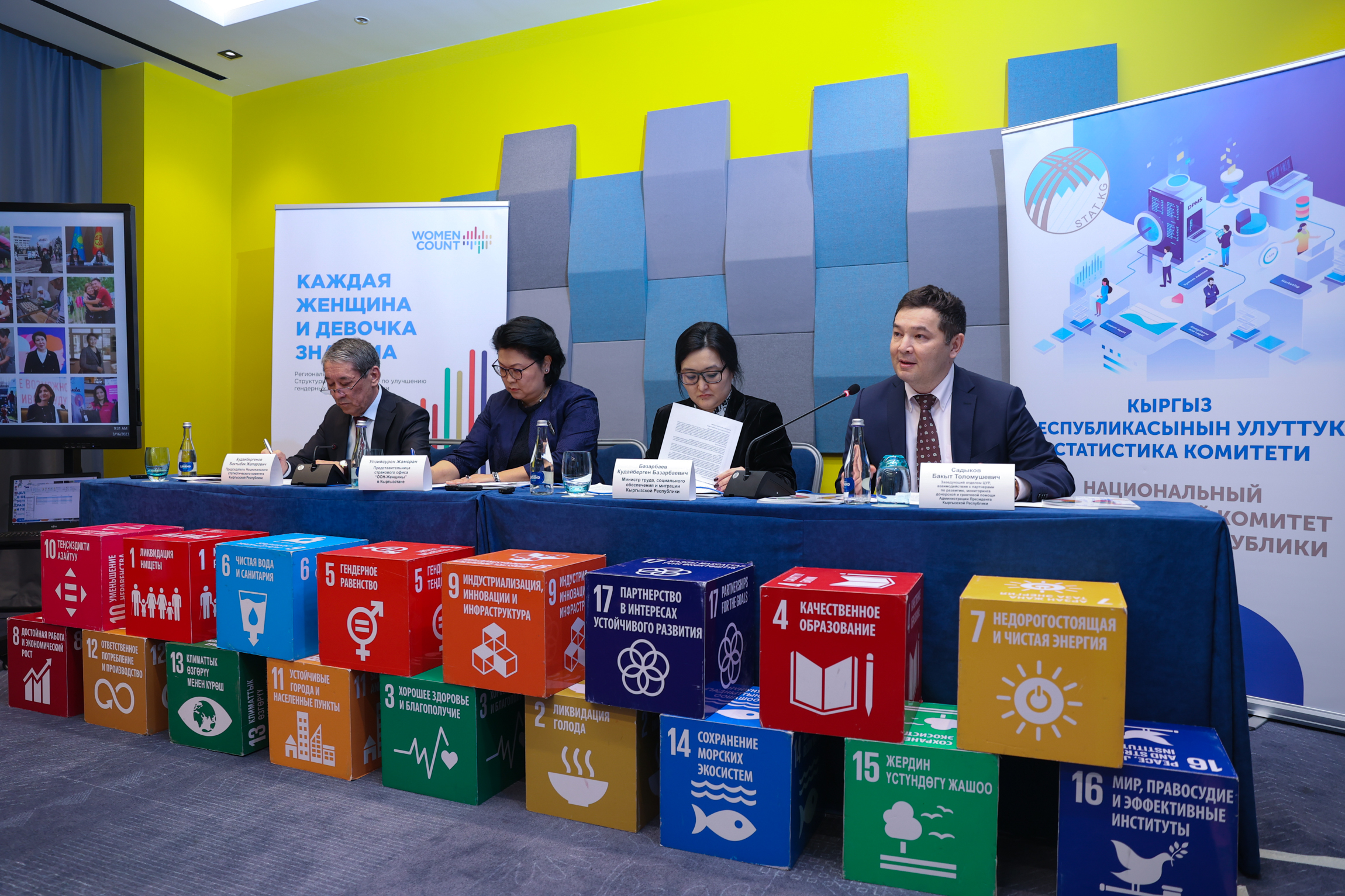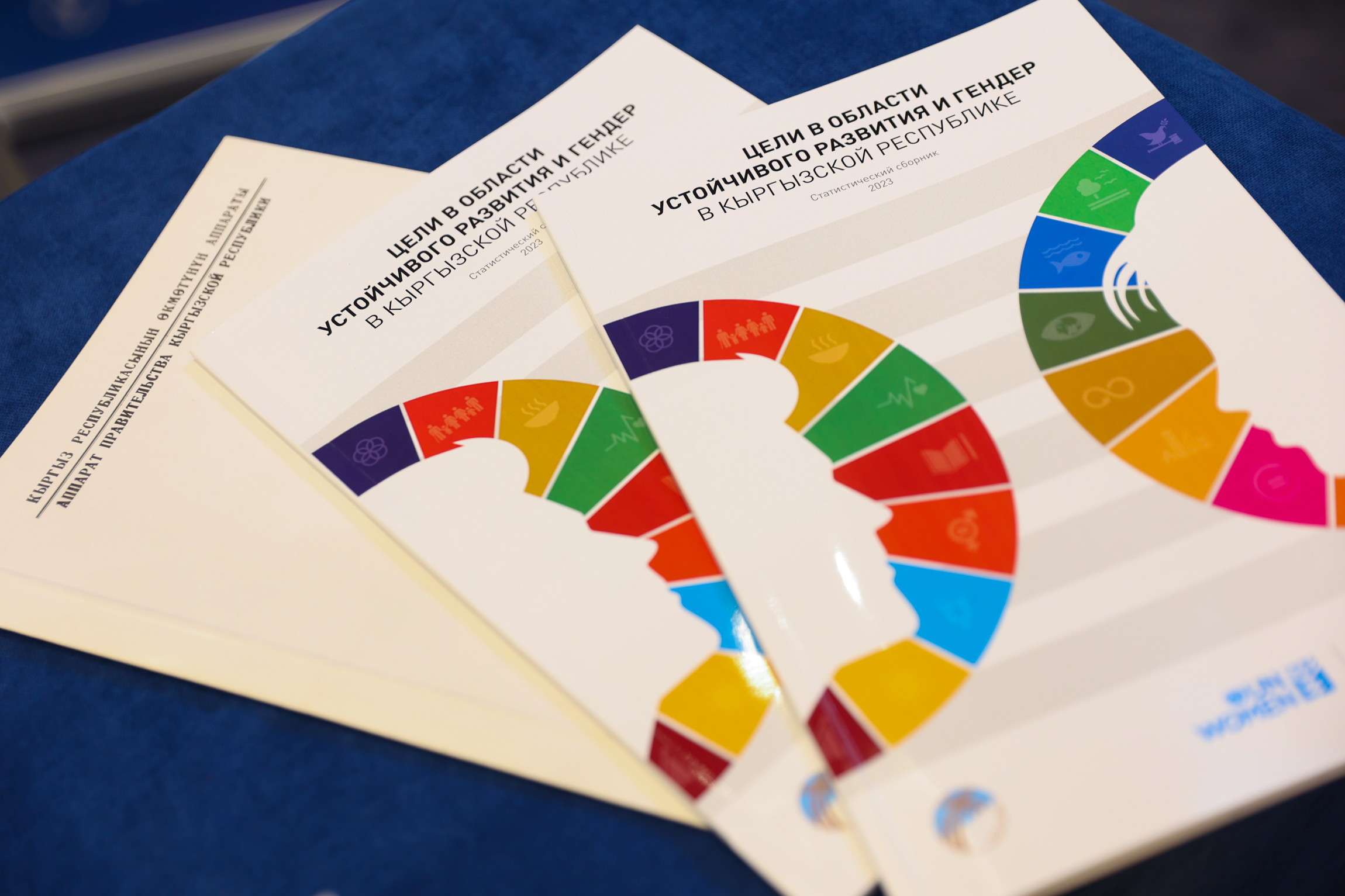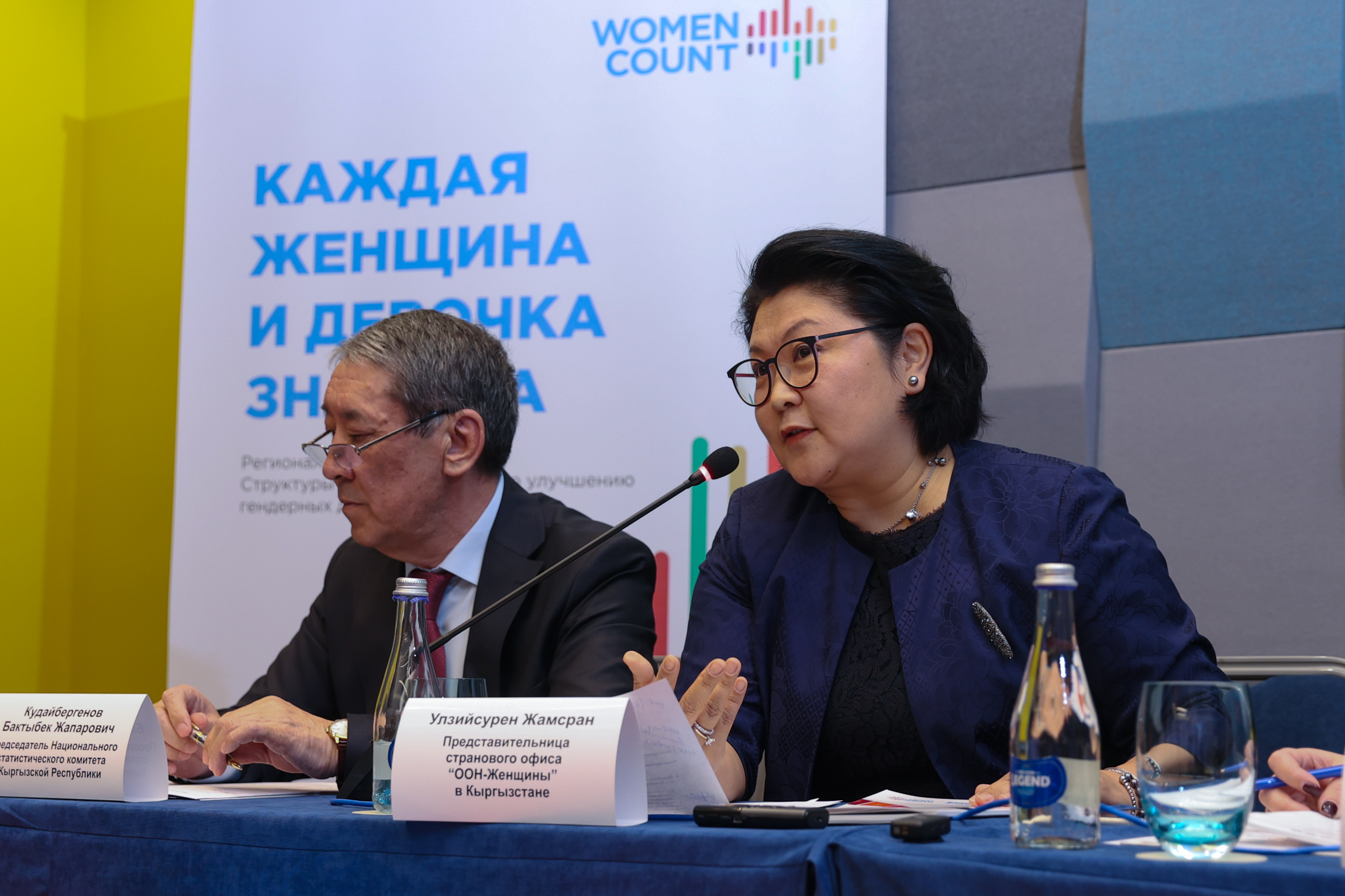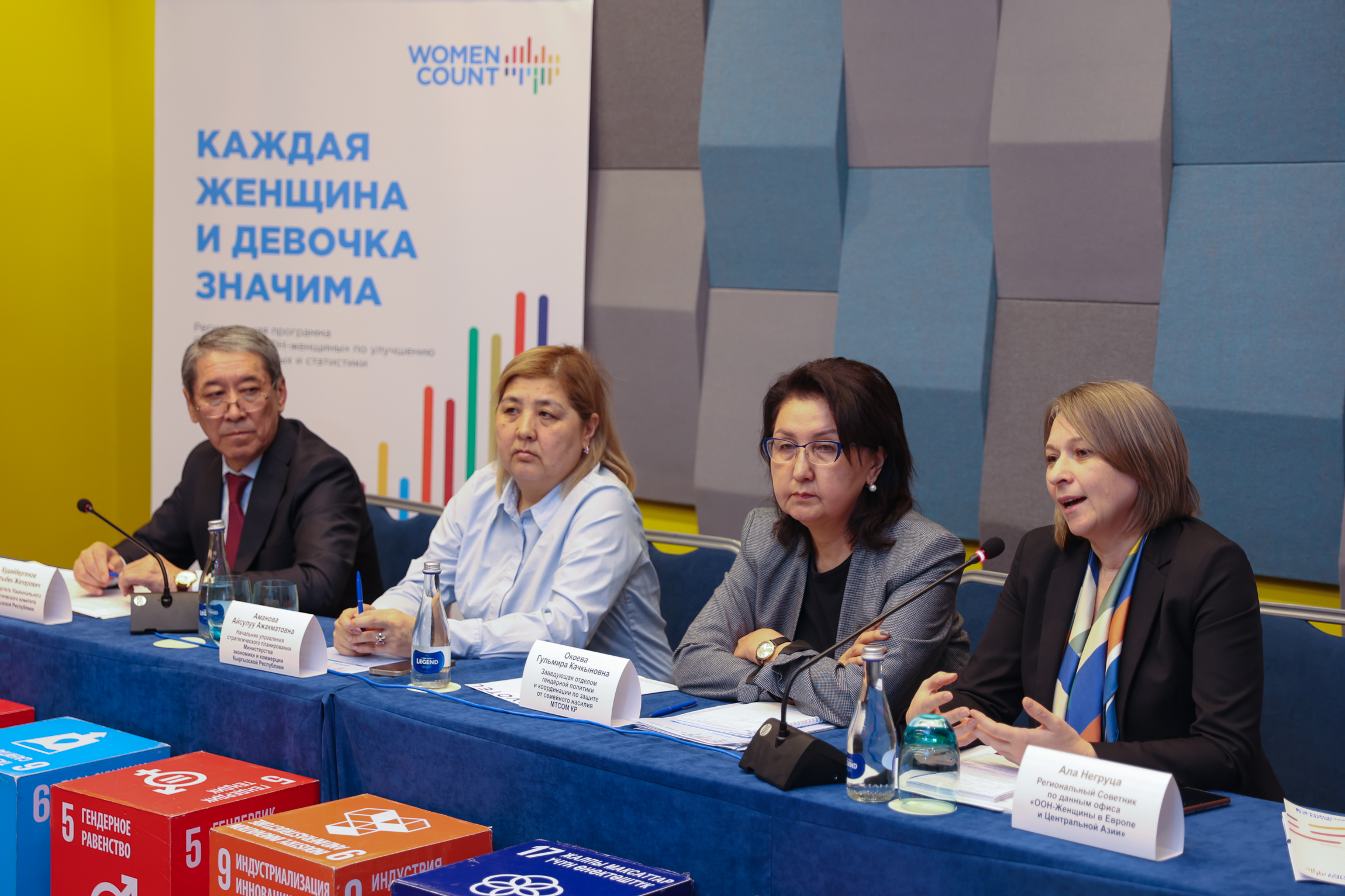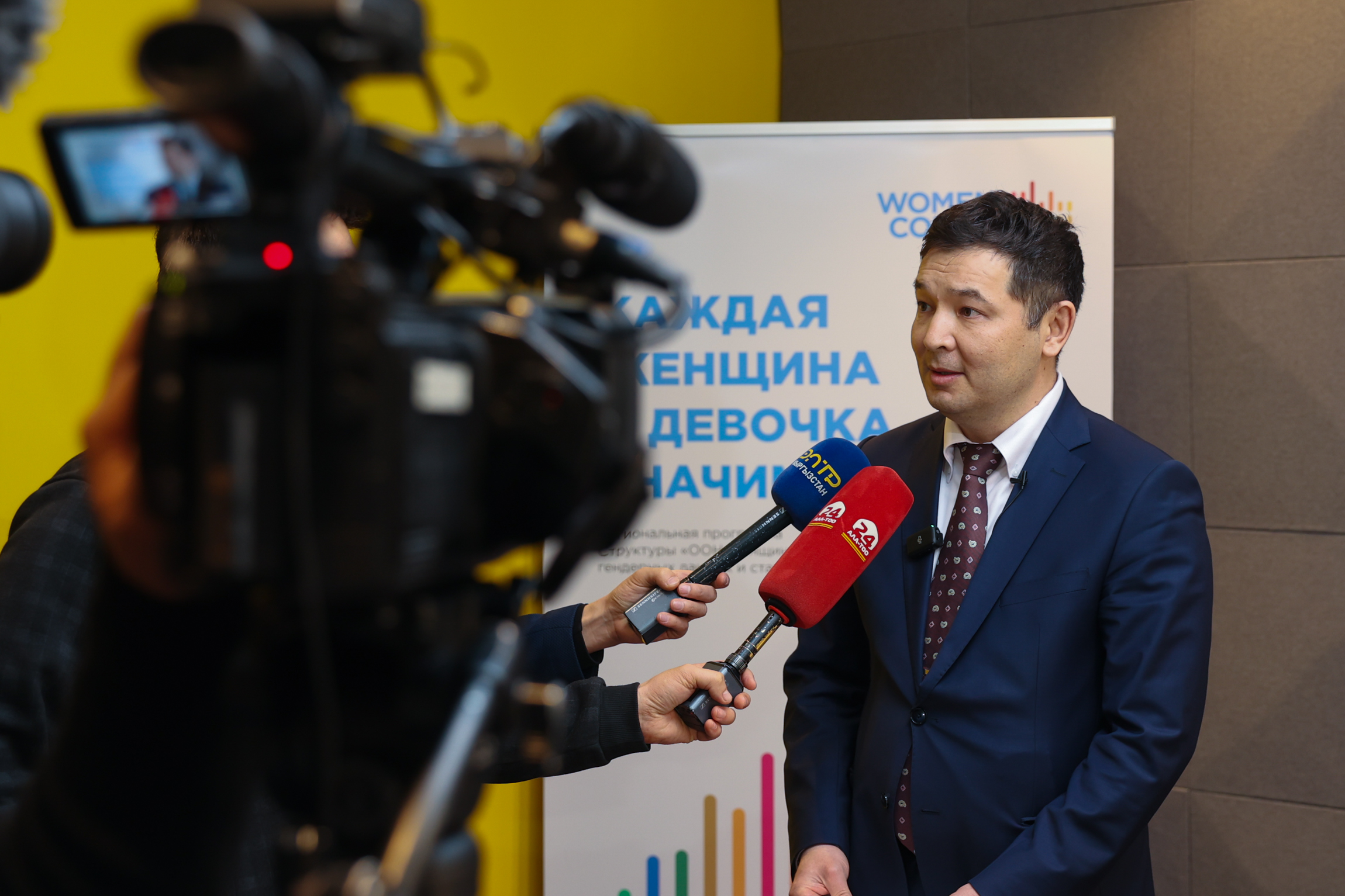Press Release - Women in Kyrgyzstan spend almost 5 times more time than men on unpaid care and domestic work: How does gender equality look like in Kyrgyzstan?
Date:
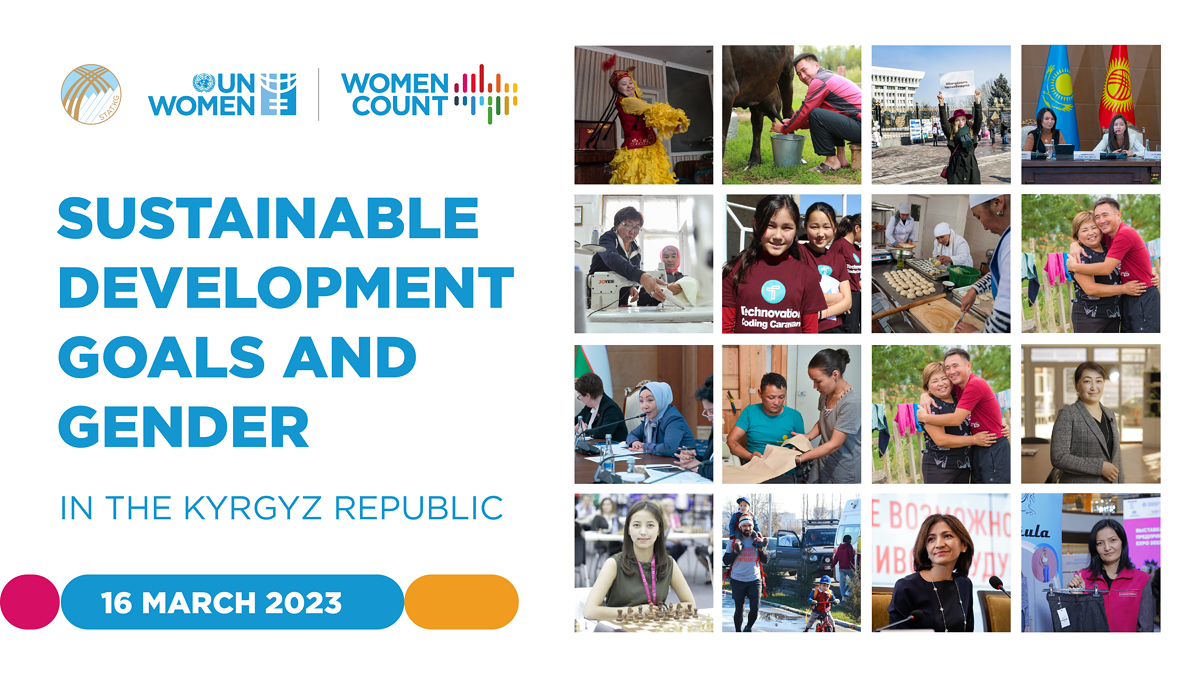
16 March 2023, Bishkek, Kyrgyzstan - The National Statistical Committee of the Kyrgyz Republic (NSC) jointly with UN Women Regional Office for Europe and Central Asia presented the results of a new publication "Sustainable Development Goals (SDGs) and Gender in the Kyrgyz Republic”. The event brought together representatives of government agencies, civil society, academia and international organizations to discuss progress in achieving sustainable development and gender equality to make informed policy decisions for SDGs implementation and the empowerment of women and girls.
Participants discussed violence against women and girls, unpaid care and domestic work, women's employment and participation in decision-making, and the importance of gender data to monitor progress on the SDGs. In his welcoming speech NSC Chair Baktybek Kudaibergenov highlighted: "We live in the digital age, where statistics and data are essential for informed policy-making and sustainable development. Improving gender data collection is one of the priorities within the National Strategy for Official Statistics Development by 2030".
According to the publication, in 2021, the number of survivors of domestic violence was almost three times higher than in 2015, among them 96 per cent are women. Meanwhile, early and forced marriages remain an acute social problem in Kyrgyzstan. In 2018, 12.9 per cent of women were married before the age of 18. In rural areas, this ratio is almost two times higher than in urban areas.
"Timely and disaggregated gender statistics are a critical lever for accelerating progress in realizing the rights of women and girls in the context of digitalization and achieving the SDGs," underlined Ulziisuren Jamsran, UN Women Representative in Kyrgyzstan.
The report also highlights that women in Kyrgyzstan spend almost 5 times more time than men on unpaid domestic work, which hinders their participation in paid work. For example, 63.4 per cent of unemployed working-age women are not employed due to their domestic responsibilities. Meanwhile, working women spend 6.5 times more time on domestic work than working men. As a result, women have 1.4 times less free time than men.
Women's participation in decision-making also remains low. Despite a new provision of the electoral law, stipulating that in case a deputy leaves the faction, her or his mandate must be transferred to another deputy of the same gender, the number of women in the Kyrgyz parliament continues to decrease year by year. In 2021, only 20.5 per cent of parliamentarians are women. The male dominance (59.3 per cent) also persists in the civil service, but the greatest gender imbalance is at the level of political and special positions, where women account for only 24.2 per cent. The share of women in management positions was 42.9 per cent in 2021.
During the presentation, UN Women Regional Gender Statistics Specialist for Europe and Central Asia Ala Negruta underlined the importance of additional efforts and investments in gender statistics to improve planning, developing and monitoring gender equality policies and implementation of country's national and international commitments. "Investing in gender data is key for the advancement of gender equality," added Ala Negruta.
Gender analysis of labor market in recent years demonstrates a steady downward trend in women’s economic activity, where the employment rate of women does not exceed 42.4 per cent. Moreover, the unemployment rate of women is 1.3 times higher than of men. Women’s employment rate in urban areas is 7.3 percentage points higher than in rural areas and is the same for rural and urban men. The largest gender employment gap is in 25-34 years old age group, often due to women having children in this age. Inequalities also persist in the average salary of women and men, where the average salary of women is only 75.1% of the average salary of men.
In 2015, the Kyrgyz Republic, along with other countries, committed to meeting international commitments under the UN 2030 Agenda for Sustainable Development by nationalizing the SDGs. Gender equality and women's empowerment are integral to each of the 17 SDGs. Incorporating a gender perspective into key strategic documents and their action plans has been identified as an important prerequisite for effective promotion of gender equality.
The publication "Sustainable Development Goals and Gender in the Kyrgyz Republic” was issued by NSC in partnership with the UN Women Regional Office for Europe and Central Asia within the “Making Every Woman and Girl Count” regional programme.
For more information, please reach out to:
Meriza Emilbekova, Communications and Outreach Specialist, UN Women Regional Office for Europe and Central Asia, [ Click to reveal ].
